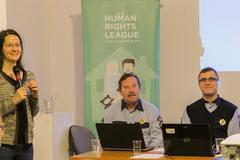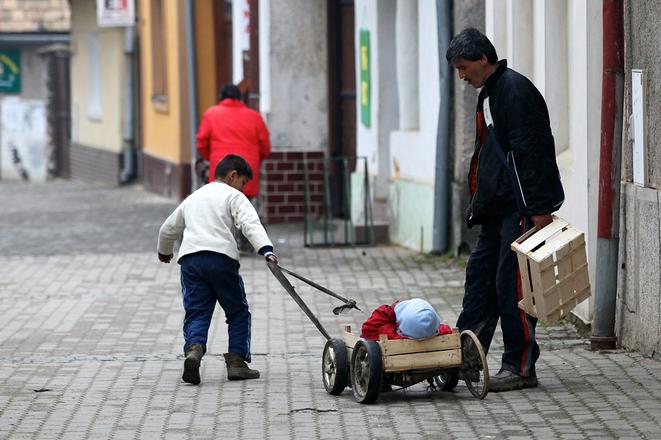Slovakia should improve the education of Roma, notably by adequately preparing children for compulsory schooling, and to develop an action plan for LGBTI persons in order to protect them against discrimination, hate crimes and hate speech.
This stems from a recent report of the European Commission against Racism and Intolerance (ECRI) of the Council of Europe.
Some improvements noted
Since the adoption of ECRI’s last report in 2014, Slovakia has made progress in certain areas. There has been a significant increase in the budget of the National Centre for Human Rights, an action plan against racism was adopted, and penalties for hate speech have been imposed on some politicians and media.

In addition, the Criminal Code provisions on hate crimes have been strengthened and specialised units within the police, the prosecution services and the courts, have been tasked with combating these crimes.
“Aware of the poor living conditions of the Roma, the Slovak authorities have shown determination to improve their situation in education, housing and employment,” the report reads.
However, important challenges remain to be addressed.
Roma education still a problem
Many Roma still live in shanty towns under conditions of segregation, discrimination and extreme poverty, the report noted.
The report drew particular attention to several problems related to the education of Roma children, who can often not attend pre-school and learn Slovak before entering primary school, even though it often becomes their language of instruction.

“The ECRI therefore calls on authorities to build a sufficient number of nursery schools and to train and recruit the teaching staff necessary to teach Slovak to Roma children,” the report reads. “Furthermore, it urges the authorities to put an end to the segregation of Roma in specific schools and classes, which still affects far too many Roma children.”
The ECRI has welcomed initiatives to restore the trust of Roma in the police, such as plans to recruit some 2,000 Roma as members of civil patrols. However, it claimed that more should be done in this area, in particular as regards investigations into police violence against Roma, and notes that the intervention of the police and the army during the Covid-19 pandemic caused a lot of fears of stigmatisation among the Roma.
The ECRI recommends that the independence of the police inspectorate be reinforced or another body, which is independent and adequately resourced, be tasked with investigating allegations of racist, homophobic and transphobic police abuse, and that the wearing of body-cams by police officers during interventions be generalised.
Action plan for LGBTI needed
Despite certain improvements in attitudes towards LGBTI persons, a negative dynamic has developed in recent years as a result of persistent anti-LGBTI hate speech, and particularly regrets the campaigns carried out by some political parties, the ECRI noted.

A draft action plan discussed in 2015 aimed at improving the situation of LGBT persons was eventually not adopted.
“Thus, as a matter of priority, the ECRI recommends the development and implementation of such a plan to make effective the right to the equality of LGBTI persons, to raise public awareness about the problems they face, and to protect them from hate crimes, hate speech and discrimination,” the report reads.
The ECRI also advocates eradicating the practice that forces transgender persons to undergo sterilisation in order to change their registered name and gender, which has no legal basis in Slovak law and is contrary to the case law of the European Court of Human Rights.

The ECRI noted with concern that hate speech has also increased against other groups, especially Jews, Muslims, migrants, Roma and black persons. It regretted that internet operators remove very little of this hate content.
Another concern is that many hate crimes go unreported to the authorities. The ECRI recommends a number of criminal law reforms, including making racist, homophobic and transphobic motives an aggravating circumstance for any criminal offence.
Recommendations
The report contains 15 recommendations to the Slovak authorities. Two of them should be addressed as a matter of priority: the development of an action plan for LGBTI persons and ensuring that Roma children have access to education that prepares them adequately to attend primary school.
It also recommends measures to strengthen the independence of the Slovak National Centre for Human Rights, end the discrimination of Roma women in obstetrics departments at hospitals, and establish an independent committee of inquiry to investigate the past practice of sterilising Roma women without free and informed consent, and proposing a compensation scheme.



 Illustrative stock photo (source: Tibor Somogyi)
Illustrative stock photo (source: Tibor Somogyi)